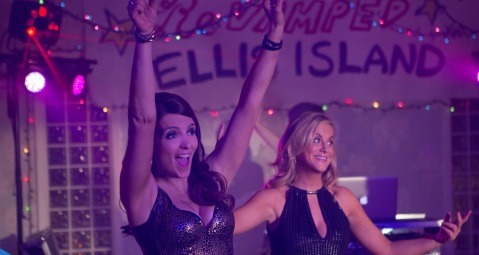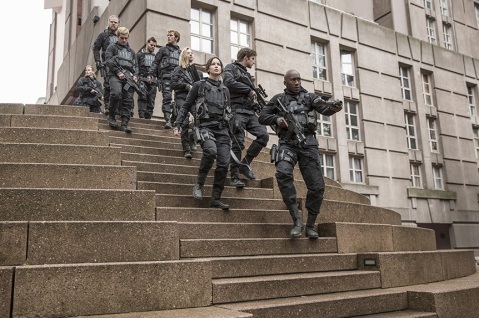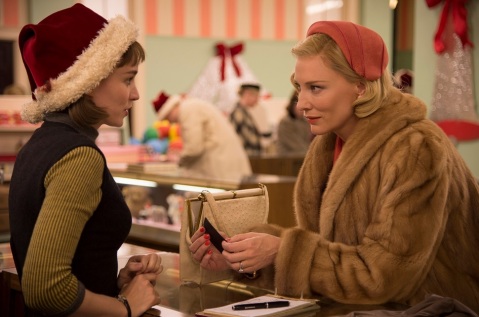2015 in movies: Anna’s top ten
2015 is rapidly drawing to a close (hello, the future!) and with the end of the year comes the irresistible temptation to look back and assess the year gone past. So here’s my tuppence worth: my top ten movies released in the UK in 2015.
10. Selma (Dir: Ava DuVernay)
Eschewing traditional biopic trappings to focus on a period of months approaching the signing of the Voting Rights Act in 1965, DuVernay’s dynamic direction melded perfectly with David Oyelowo’s masterful performance to deliver a powerful and relevant film. SITCS rating: 4/5
9. Suffragette (Dir: Sarah Gavron)
Scripted by the superlative Abi Morgan, Suffragette harnessed the considerable talents of Carey Mulligan to bring humanity to the tale of the suffragette movement in the early 1900s. Although key players are glimpsed (Meryl Streep as Emmeline Pankhurst and Natalie Press as Emily Davison), at the heart of the story are the ordinary women who were inspired to stand up for what they believed was right.
8. The Falling (Dir: Carol Morley)
Strange and hypnotic, Morley’s tale of a 1960s girls school seized by a fainting epidemic was as enchanting as it was unsettling. Featuring a show-stopping performance from Game of Thrones’ Maisie Williams, along with a strong supporting cast, The Falling’s many twists, turns and ambiguities provided food for thought long after the credits rolled. SITCS rating: 5/5
7. While We’re Young (Dir: Noah Baumbach)
Baumbach’s most serious film first matched and then pitted Ben Stiller’s documentary film maker with (/against) Adam Driver’s young upstart in a comedic tale of ambition. Although it felt like a move away from the screwball elements of Frances Ha, Baumbach’s signature line of absurdist humour was still very much present, such as in a surreal encounter between Stiller’s Josh and a bemused financier.
6. Les Combattants (Dir: Thomas Cailley)
A remarkably accomplished debut feature for French director Thomas Cailley, Les Combattants is a gently comedic tale about the aimless Arnaud (Kévin Azaïs), who follows apocalypse-obsessed Madeleine (the always excellent Adèle Haenel) into a military boot camp. Offering a wry look at youthful expectations of life and romance and featuring a fascinating third act tone-shift, Les Combattants delivered enjoyment above and beyond its simple premise, and Cailley will definitely be one to watch. SITCS rating: 4/5
5. Grandma (Dir: Paul Weitz)
Squeaking in at the last minute (it didn’t make it to Bristol until Dec 28th) Grandma was a surprise entry into my top 10 this year. The straightforward story- a pregnant teen, fearing the wrath of her mother, goes to her grandmother for the cash necessary to get an abortion- is brought into vibrant life by a razor sharp comedic script and impressive performances, including Lily Tomlin as the gloriously acerbic titular matriarch, Elle. Although the slim running time doesn’t leave much time for exposition, the characters feel fully realised, and it’s a pleasure to be in their company. I found myself glued to the screen throughout.
4. Clouds of Sils Maria (Dir: Olivier Assayas)
Assayas’ postmodern tale of actress Maria Enders (Juliette Binoche) wrestling with insecurities brought bubbling to the surface in the wake of agreeing to play the role of the tragic older woman in a play about a relationship gone sour provided a fascinating exploration of the relationship between performer and material. This, combined with a complex friendship between Enders and her assistant Valentine (a César award winning turn from the increasingly impressive Kristen Stewart) and the breathtaking environs of the Swiss Alps amounted to a fascinating piece. SITCS rating: 4/5
- Appropriate Behaviour (Dir: Desiree Akhavan)
A hilarious, warm and poignant coming of age tale following Shirin (Akhavan) as she attempts to recover from a breakup with her first girlfriend Maxine (Rebecca Henderson) and navigate the dual identities of being both bisexual and Iranian. Akhavan’s frank take on sexuality, family relationships and the foibles of generation Y works as both a knockabout comedy and an interesting illumination of one of the more frequently overlooked letters in the LGBTQ acronym. SITCS rating: 5/5
2. Ex Machina (Dir: Alex Garland)
2015 was an interesting year for sci-fi, with big blockbusters (The Martian, Star Wars: the Force Awakens) sitting easily alongside indie releases (from the frustrating The Signal to fascinating on-demand releases such as Predestination and Advantageous). Ex Machina was released in January and made enough of an impression on me that it’s still in the top three of the year. Nimbly navigating the potentially problematic premise of having a female-appearing AI under the gaze of two male observers, Ex Machina is a slow-burning thriller unafraid to dig its nails into the full implications of creating an artificial being capable of passing the Turing test. Standout performances from Domnhall Gleeson and the increasingly ubiquitous Alicia Vikander and Oscar Isaac compliment the well-considered script and neat direction. SITCS rating: 5/5
- Carol (Dir: Todd Haynes)
It’s not often a straight-up (no pun intended) romance makes it near my top ten, but Todd Haynes’ glorious film stood out above all else this year. All oblique angles and loaded gazes, Haynes and screenwriter Phyllis Nagy’s adaptation of Patricia Highsmith’s novel The Price of Salt elegantly captured the love affair between unhappy socialite Carol Aird (Cate Blanchett) and young photographer Therese Belivet (Rooney Mara). Charting the heady highs and lows of an improbable but irresistible infatuation without ever becoming overwrought, Blanchett and Mara put in career-best performances as the two lovers and provide a masterclass in acting between the lines. SITCS rating: 5/5
Happy 2016 everyone!




Recent Comments